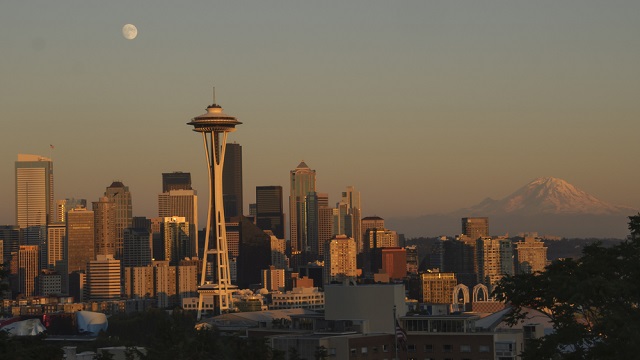Why Are Americans So Ignorant?
Last week, I looked into evidence that Americans badly misperceive the magnitude of the wealth gap in their country: the actual distribution in the United States is much more inegalitarian than we think it is. Several readers and students have asked me why I think this is the case. How could we be so clueless about the wealth gap that defines our society? Why is it so surprising to learn that 40 percent of the material wealth in our society is held by the top 1 percent, or that the bottom 40 percent of Americans have only 1 percent of the nation’s wealth?
The numbers are shocking. But the fact that we are shocked by them is no shock. The big surprise would be if we did know this stuff.
Consider a few other recent examples of American ignorance. Steve Benen is aghast that only 6 percent of Americans know that the budget deficit has been shrinking during President Obama’s presidency, despite the fact that this is a “demonstrable, incontrovertible, entirely objective truth.” Chris Cillizza laments that only 18 percent of Americans profess to have a good idea of what the consequences of the sequester will be. The Christian Science Monitor mocks Americans for wanting to “slash” foreign aid to 10 percent of the federal budget when these expenditures actually make up less than 1 percent of current annual spending.
Facts are important, of course, and responsible citizenship requires a basic familiarity with some of them. But I am beginning to tire of the stream of commentators who are shocked —shocked— to find out that so few Americans are wise to the details of federal budget expenditures and nationwide, big-picture snapshots and trends.
Weak civics curricula, partisan propaganda and misplaced priorities of the mainstream media all share some blame for American ignorance. But leaving these scourges aside, how would anyone develop an intuitive, educated layman’s idea about America’s wealth distribution? You probably know how much you have, and you might have a sense of how wealthy your neighbors and co-workers are, but why would you have any sense of how many hundreds of millions of dollars Goldman Sachs CEO Lloyd Blankfein has? Or how many billions are stuffing the portfolio of NYC mayor Michael Bloomberg? Or how many Blankfeins and Bloombergs there are in the United States, and how much they own collectively? On the other end of the spectrum, how would you know how much the bottom 20 percent have, and how little wealth they command relative to the riches of other quintiles?
We can Google all this, of course, if we’re curious, but we have no tools for making accurate estimates — or perhaps any estimates — of these macro-level data. There is no reason we should know these figures when a pollster calls us during dinner. Nor can the average Joe or Jane be expected to have a clue about how much the federal government spends on foreign aid, the military, or entitlements. And why would on-the-street Americans have a rich understanding of an arcane species of inter-branch budget temporizing called sequestration?
These are all important questions for our polity. I don’t mean to say they are inconsequential. But for average Americans busy with jobs, school and their families, poring over demographic and budgetary data just aren’t likely pastimes. As wonderful and as wonkish as he is, Ezra Klein is not your typical American.
Not every misperception of the masses is excusable. Some represent ignorance of America’s history and political institutions, and these are a lot more unsettling. I’m no Jay Leno fan, but one of his most popular bits, the “Jay Walking” segment, reveals the embarrassingly limited grasp some Americans have on reality. In the highlight reel below, when asked to name the number of stars on an American flag waving overhead, one woman responds “it’s moving too fast to count them”; another insists she had heard of the Gettysburg Address but isn’t sure exactly what street it’s on:
:
So there is good reason to complain about “ignorant Americans.” But while we should expect more than 62 percent of citizens to be able to name the vice president, we can’t hold it against them for failing to keep a register of budget allocations — or comprehensive wealth distribution data — in their heads.
Read on:
Why Do Americans Tolerate Extreme Wealth Inequality?
How Rational Are You? Try This Quiz
Why Do Americans Have Less Vacation Time Than Anyone Else?
Image credit: Shutterstock.com





